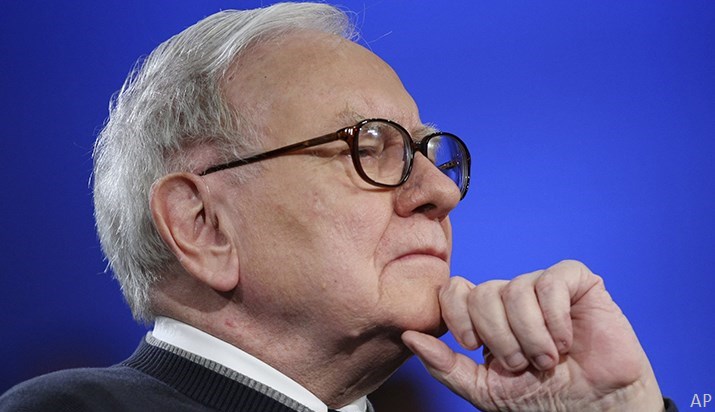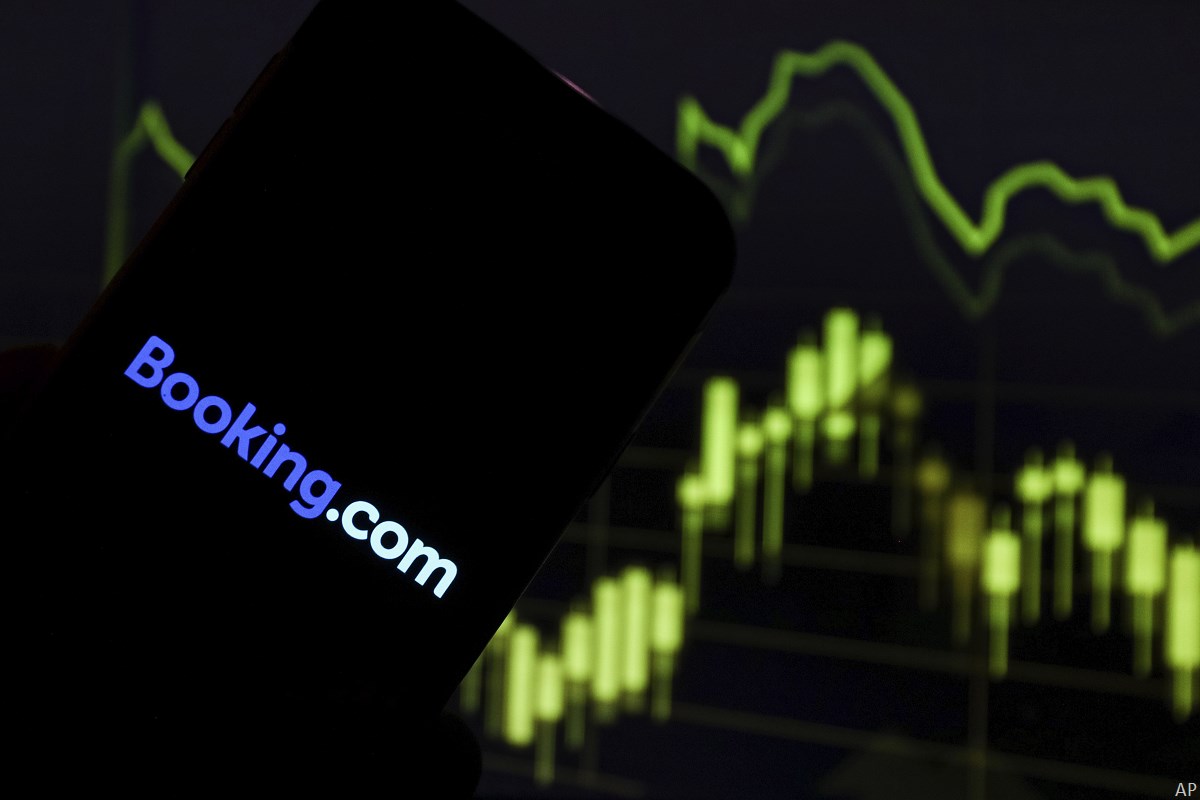
A couple of weeks ago, Berkshire Hathaway (BRK.A)/(BRK.B) released its third-quarter 13-F. Morningstar's resident Berkshire specialist, Gregg Warren, noted that the firm shaved its mammoth stake in Apple, though it still remains the portfolio’s top holding by a significant margin. The team also trimmed its positions in Wells Fargo, General Motors, and Suncor Energy, among others.
Buffett and crew used a portion of the proceeds to pick up shares of Verizon, Chevron, Marsh & McLennan, Merck, AbbVie, and RH.
Here are our analysts’ latest commentaries about three stocks in Berkshire Hathaway's portfolio that are among the most undervalued by our standards.
Coca Cola (KO)
Morningstar Rating (as of 2.25.21): 4 stars
Economic Moat Rating: Wide
"Coca-Cola’s ubiquity and brand resonance in the nonalcoholic beverage category has been going strong for over 130 years, and we see structural dynamics that will ensure this persists. Despite competing in a mature industry, the firm is adequately exposed, either directly or indirectly, to growth vectors such as premium water and energy drinks. Moreover, we believe Coke will be able to continue extracting incremental value growth from the carbonated soft drink (CSD) market.
The runway for growth is supported by ample room for share gains as well as geographic tailwinds. We estimate Coke derives more than 40% of sales from developing or emerging economies with burgeoning middle classes and low per-capita CSD consumption. We expect commercial drinks will become a larger portion of beverage consumption globally, and see the company executing against each of its market-specific strategies.
In developed markets, where Coke has firmly established the resonance of its brands, its strategies are geared toward profit growth driven by innovation. In developing markets, where its trademarks are visible but competition is rife, differentiation and eventual migration into higher-margin offerings is key. In emerging markets where the firm is less established, it is focused on driving volume growth even at the expense of modest margin dilution. We view these approaches as prudent and believe the decision to cull peripheral brands (going from 400 master brands to 200) will facilitate execution.
Coke’s future trajectory is not without risk, as it faces COVID-19 disruption, secular headwinds in terms of consumer sentiment, and well-capitalized rivals. Still, with a more aligned and technologically capable distribution system, digitization initiatives to drive engagement and operational efficiency, and vast financial resources, the firm is more than equipped to defend its turf. Ultimately, Coke’s overarching goal is to put drinks in more hands in more places more quickly than any competitor. We believe this pithy synopsis represents the crux of the firm’s competitive positioning, underpinned by its cost advantage and intangible assets."
Nicholas Johnson, analyst
Kraft Heinz Company
Morningstar Rating (as of 2.25.21): 4 stars
Economic Moat Rating: None
“No-moat Kraft Heinz closed the books on a volatile 2020 in epic fashion, posting 6% organic sales growth in the fourth quarter and 240 basis points of adjusted operating margin expansion to 22.4%. While we concede that pandemic-induced stock-ups of essential fare (like that in Kraft Heinz’s mix) have provided a timely boost, we also attribute a portion of this improvement to the new course laid out by CEO Miguel Patricio centered on pursuing sustainable efficiencies and leveraging its scale while also elevating its brand spending and enhancing its capabilities.
Along with the results, Kraft Heinz announced the sale of its nut business (including the Planters brand) to narrow-moat Hormel (HRL) for $3.35 billion. The deal equates to generous 3 times fiscal 2020 sales and 15 times adjusted EBITDA multiples. We view the transaction, slated to close in the first half of 2021, as strategic for both operators. For Kraft Heinz, the deal should enable it to hone its focus on core brands and businesses while reducing leverage, a side effect of past management’s hunger for deals. And for Hormel, long regarded as a disciplined acquirer, we think Planters stands to complement its presence in the peanut butter aisle and potentially afford better sourcing opportunities. However, we don’t expect the transaction alone to alter our $34.50 fair value estimate for Hormel.
When taken together, we intend to edge up our $48 fair value estimate for Kraft Heinz by $1-$2, driven by modest adjusted EPS outperformance in fiscal 2020 of $2.88 versus our prior $2.79 marks and the time value of money. However, we aren’t wavering in our long-term expectations of low-single-digit sales growth and low-20s operating margins given the competitive and inflationary headwinds that we think will stall its current trajectory over time. Shares popped by a mid-single-digit percentage after earnings, but we still view the stock as attractive, trading at [a significant] discount to our intrinsic valuation.”
Erin Lash, sector director
Bank of New York Mellon
Morningstar Rating (as of 2.25.21): 4 stars
Economic Moat Rating: Wide
“With over $41 trillion in assets under custody or administration (AUC/A), the Bank of New York Mellon is the largest custodian in the world. While core custody can be an undifferentiated offering, scale and the stickiness of clients have helped the firm generate double-digit returns on tangible equity.
BNY Mellon’s Investment Servicing segment is much more than asset servicing. Within Investment Servicing, the company offers issuers services that include corporate trustee and depositary receipts such as ADRs. Though the largest provider of depositary receipts, BNY Mellon has lost ground to competitors. BNY Mellon’s clearance and collateral management (about 7% of revenue) is unique in that it is the sole provider of tri-party repos for U.S. government securities. Pershing, which the BNY acquired in 2003, provides broker/dealer clearing and RIA custody services and has been a bright spot for BNY Mellon. We expect Pershing to continue to benefit from the secular growth of RIAs.
In addition to its investment servicing businesses, about one fourth of the firm’s revenue is from its $2 trillion asset management business. Given the lower switching costs, we’d consider the asset management division to have a narrower moat than its investment servicing division.
The largest impact to the firm’s revenue from COVID-19 has been from low interest rates. We expect net interest income to decline meaningfully in 2020 and 2021 as low interest rates and a flatter yield curve weigh on net interest margin. In addition, management expects to enter 2021 with roughly $700 million in annualized money market fee waivers, primarily from the Pershing and wealth management businesses.
BNY Mellon has faced criticism for a lack of cost control and integration failures in the Mellon merger. While we acknowledge some of the criticism and can see how BNY’s Mellon’s seven lines of business seem bulky, management in recent years has been aggressively focusing on expense control and we’d note that the firm consistently sees 15%-plus returns on tangible equity. Given pricing pressure and the low interest rate environment, we expect management to keep a lid on expense growth.”
Rajiv Bhatia, analyst























